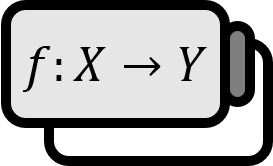Differentiation of Exponential Functions
Formulas
The derivative of the exponential function is as follows.
$$ \begin{equation} \dfrac{d e^{x}}{dx} = e^{x} \label{fml1} \end{equation} $$
The derivative of the exponential composite function is as follows.
$$ \begin{equation} \dfrac{d \left( e^{f(x)} \right)}{dx} = f^{\prime}(x)e^{f(x)} \label{fml2} \end{equation} $$
Description
The exponential function is the only function that is equal to its own derivative.
Derivation
(1)
Using the definition of the derivative, the calculation is as follows.
$$ \begin{align*} \dfrac{d e^{x}}{d x} &= \lim \limits_{h \to 0} \dfrac{e^{x+h}-e^{x}}{h} \\ &= e^{x}\lim \limits_{h \to 0} \dfrac{e^{h}-1}{h} \\ &= e^{x} \end{align*} $$
The last equality holds because of $\lim \limits_{x \to 0} \dfrac{ e^{x} - 1}{x} = 1$.
■
(2)
By the chain rule, it is as follows.
$$ \begin{align*} \dfrac{d e^{f(x)}}{d x} &= \dfrac{d e^{f(x)}}{d f(x)} \dfrac{d f(x)}{d x} \\ &= e^{f(x)} f^{\prime}(x) \\ &= f^{\prime}(x) e^{f(x)} \end{align*} $$
■
